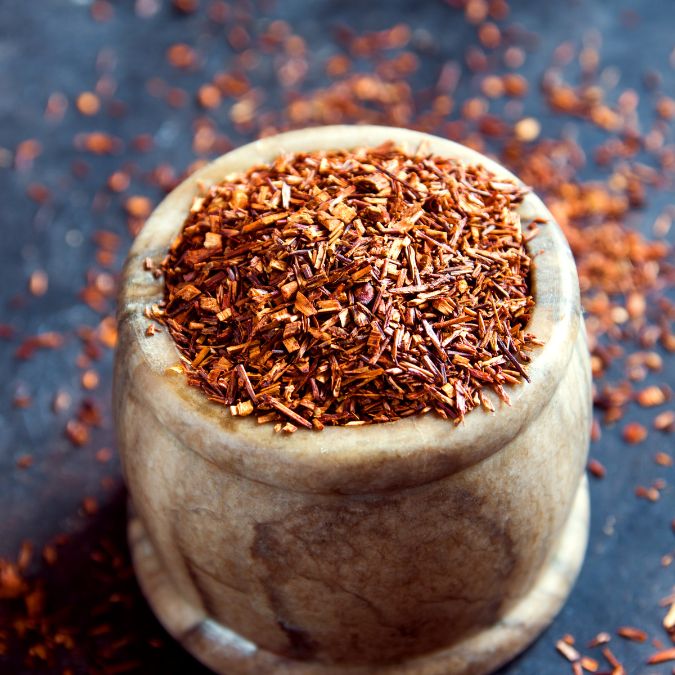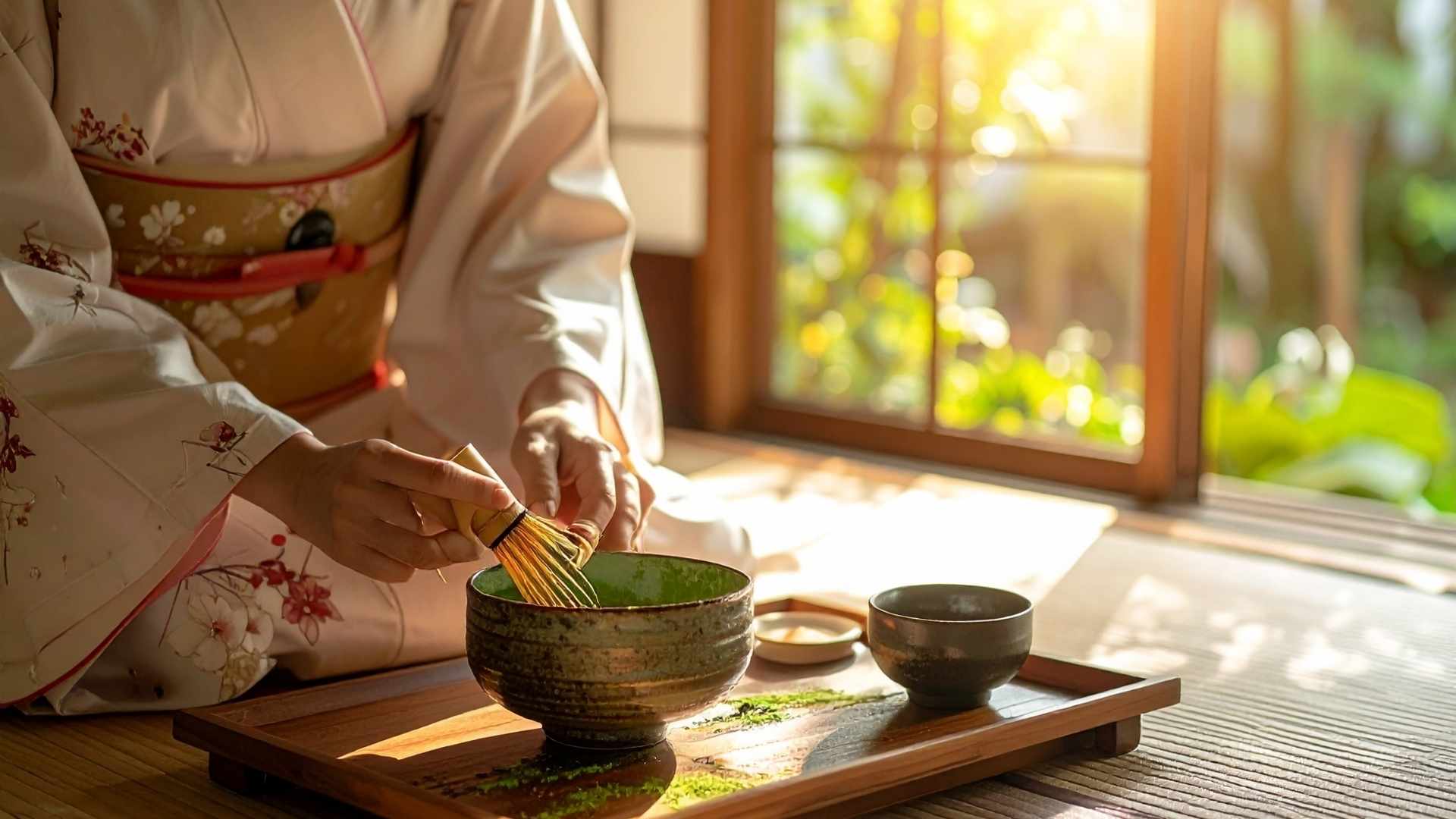Rooibos is an herbal infusion originating from South Africa that is well known throughout the world. Unlike tea, which is made from the leaves of its respective plant, rooibos is made from the leaves of the Aspalathus linearis plant. The best part, apart from the taste, is that it is caffeine-free , making it a relaxing and healthy drink.
In addition to its deliciously sweet taste, rooibos has a long history and many health benefits. The indigenous Khoisan people of South Africa have been using rooibos for centuries as a medicinal drink to treat a variety of ailments. However, it wasn't until the 18th century that it began to gain popularity among European settlers in South Africa, who began brewing it as a beverage to replace imported tea.
I am convinced that you are familiar with this infusion, but I am going to tell you five things that you may not have known about rooibos:
not a tea
Contrary to what many people think, rooibos is not a tea. Although it is prepared in a similar way, rooibos does not contain theine. Little word. I promise you.
It is rich in minerals
Rooibos is rich in essential minerals such as iron, calcium, and potassium , making it a highly nutritious drink.
It is high in antioxidants
Rooibos is rich in antioxidants that help protect the body's cells from damage caused by free radicals.
Has anti-allergic properties
Rooibos has been shown to have anti-allergy properties that can help reduce allergy symptoms such as a stuffy nose and sneezing.
Improves skin health
Rooibos is rich in compounds that can help improve skin health. Rooibos has been shown to help reduce inflammation and promote collagen production , which can help improve the appearance of skin and prevent premature aging.

Rooibos Properties
As it has become more popular around the world, researchers have discovered many of its health benefits. Among other things, it is rich in antioxidants that help protect the body's cells against damage caused by free radicals.
Antioxidants are important because they can help prevent chronic diseases like cancer and heart disease. In fact, some studies have found that rooibos contains more antioxidants than green tea .
Additionally, it has anti-inflammatory properties that can help reduce inflammation throughout the body. Chronic inflammation is linked to many diseases, including heart disease, diabetes, and cancer.
Rooibos may also improve heart health by lowering blood pressure and cholesterol. A study in rats found that consumption of rooibos lowered blood pressure and levels of total and LDL cholesterol (the "bad cholesterol").
Another key benefit for me is that it helps reduce stress and anxiety. Rooibos contains a compound called aspalathin that has been shown to have anti-anxiety effects in mice. Additionally, some studies have found that rooibos can improve sleep and relaxation.
As if all this were not enough, it improves digestive health by relieving diarrhea and other gastrointestinal disorders, and its anti-allergy properties have been shown to reduce allergy symptoms, such as nasal congestion and sneezing.
Honestly, I don't think that at this point in the article you have many doubts as to why it is an infusion that fits you like a glove.

Rooibos History
The history of rooibos dates back centuries to South Africa, where the plant has grown naturally in the Cederberg region . Although the indigenous peoples of South Africa have been using it for centuries for medicinal purposes, it wasn't until the 18th century that European settlers began to view it as a drink.
Dutch settlers are believed to have discovered rooibos in the 18th century when they arrived in South Africa and began experimenting with different plants to make beverages to replace imported tea. It was then that they discovered that the leaves of the plant, when dried and soaked in hot water, produced a tasty and healthy drink.
Rooibos consumption was for a long time limited to South Africa, and it was mainly the Afrikaans-speaking community that enjoyed it. However, during World War II, the lack of access to imported products made rooibos a popular and affordable alternative to tea. Today, South Africa remains the world's largest producer and exporter of rooibos.
And now comes the good part because I have brought this infusion to the store so that you can enjoy it knowing that it has the highest quality guarantee. I have tried it and I can confirm that it has a lot of flavor and an aroma that you will love.
Try it and tell me!




Share: